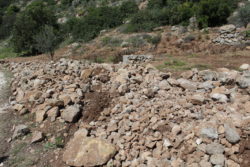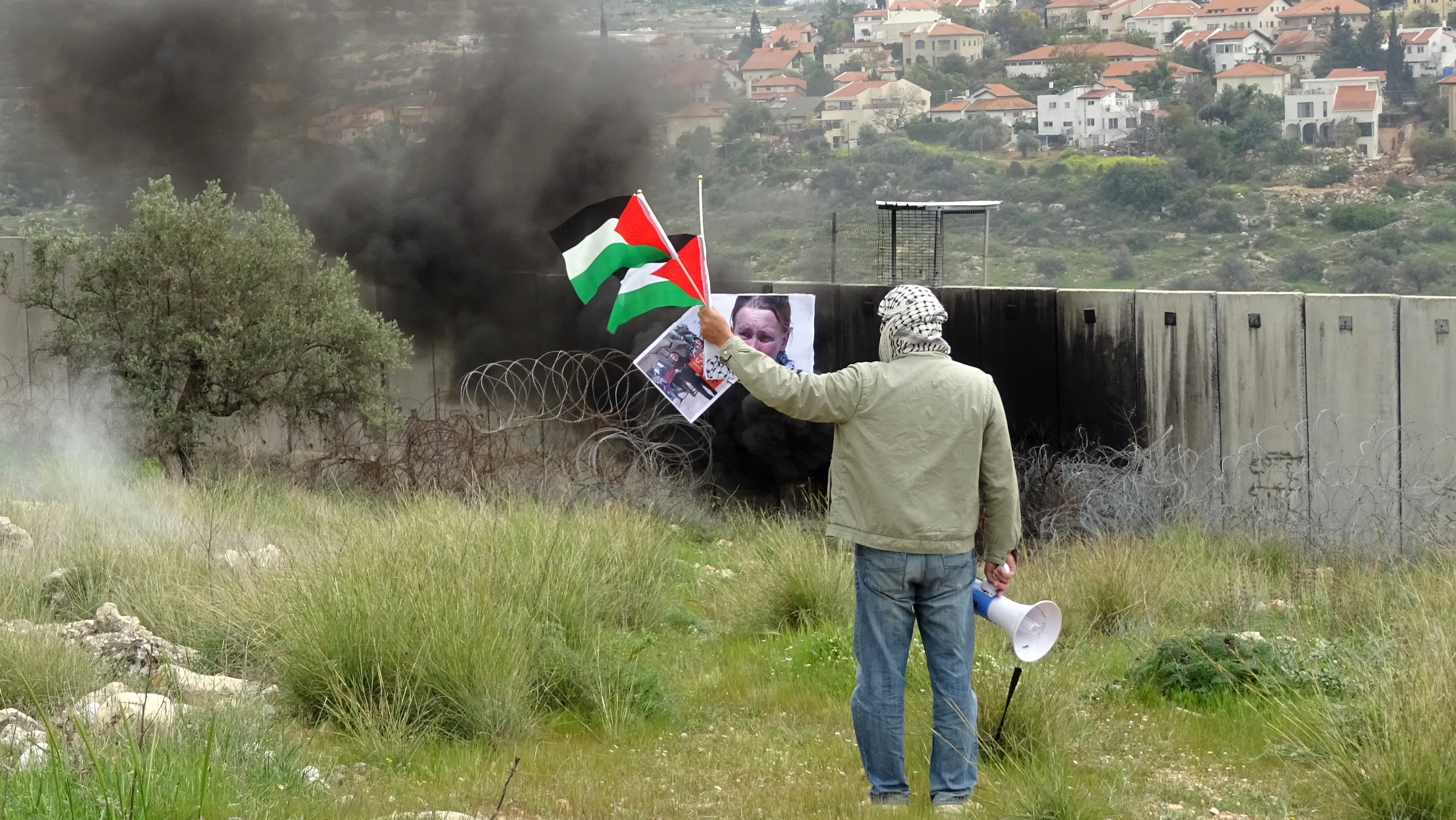Tag: Ethnic Cleansing
-
Wadi Qana’s Palestinian farmers endure another mass tree uprooting
5th April 2017 | International Solidarity Movement, al-Khalil team | Hebron, occupied Palestine Just days after Palestinians commemorated Land Day, a day which marks the struggle against the Israeli government’s expropriation of Palestinian land, farmers of Wadi Qana endured another mass uprooting and theft of their trees. Speaking from his home in the Salfit district…
-
Long-awaited maintenance works offer rare sight for Palestinians in al-Khalil
30th March 2017 | International Solidarity Movement, al-Khalil team | Hebron, occupied Palestine On Wednesday 29th March 2017 Israeli forces opened a blocked-off street for the first time in almost two decades to allow long-overdue sewage system works. The alley in occupied al-Khalil, open for less than a day, gave Palestinians the rare opportunity to see…
-
Ni’lin remembers Rachel Corrie and Tristan Anderson
17th March 2017 | International Solidarity Movement, Ramallah team | Ni’lin, occupied Palestine Today on 17/03/2017 the residents of Ni’lin alongside internationals and Israeli activists held a demonstration in memory of Rachel Corrie and Tristan Anderson, against the apartheid wall and against the occupation of Palestine. A parade of around fifty demonstrators, including Israeli and ISM…



